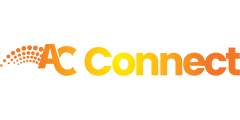Introduction
There are many resources available for community health workers (CHWs). According to the Centers for Disease Control and Prevention, a CHW is a front-line public health worker who understands the community served and is a trusted member of that community. Community health workers could be those who advocate for and work with people with disabilities, including those with limb loss or limb difference.
Community Health Workers and Access to COVID-19 Tests
The National Association of Community Health Workers is supporting the Biden-Harris administration’s rapid test distribution by leveraging CHWs, due to their expertise and their support and contributions to public health during COVID-19. Community health workers have been on the front line of COVID-19 since the beginning of the pandemic, and they have collected resources and knowledge of COVID-19 to provide better health outcomes for underserved populations.
It is important for community health workers to have the tools to protect underserved communities, including those with disabilities who experience limb loss or limb difference.
Link for CHWs to receive updates and resources from the National Association of Community Health Workers.
Mental Health and Self-Care Resources for CHWs
The NACHW provides mental health and self-care resources for community health workers on its website. Practicing mental health and self-care is integral for CHWS, and they should share these resources with the communities they serve. These communities include people with disabilities such as limb loss and limb difference.
Mental Health and Self-Care Resources for Community Health Workers
Resources To Increase Health Access and Reduce Health Inequities
The American Public Health Association (APHA) provides suggestions for how to increase health access and reduce health inequities. APHA states that, because community health workers are the front-line members of the public health field, they address issues of healthcare access, quality, costs, and disparities in the communities they serve. Policy and practice changes are needed. These changes will improve health access to the communities that CHWs serve, which would include those in underrepresented populations such as people with limb loss and limb difference.
Resources for Community Health Workers on Diabetes
CHWs serve and support communities who have diabetes or are at risk of diabetes, specifically people within the limb loss and limb difference community. According to the National Library of Medicine in July 2021, people with diabetes accounted for the majority of amputations.
The American Diabetes Association provides resources for community health workers and their patients on health disparities, as well as educational and prevention programs on diabetes.
Resources for Community Health Workers (CHWs)
For print requests, please contact:
Amputee Coalition
601 Pennsylvania Ave, Suite 420, South Building, Washington, DC 20004
888/267-5669
amputee-coalition.org
© Amputee Coalition. Local reproduction for use by Amputee Coalition constituents is permitted as long as this copyright information is included. Organizations or individuals wishing to reprint this article in other publications, including other World Wide Web sites must contact the Amputee Coalition for permission to do so.
It is not the intention of the Amputee Coalition to provide specific medical or legal advice but rather to provide consumers with information to better understand their health and healthcare issues. The Amputee Coalition does not endorse any specific treatment, technology, company, service, or device. Consumers are urged to consult with their healthcare providers for specific medical advice or before making any purchasing decisions involving their care.
This project was supported, in part, by grant number 90LLRC0001-04-00, from the Administration for Community Living, U.S. Department of Health and Human Services, Washington, D.C. 20201. Grantees undertaking projects under government sponsorship are encouraged to express freely their findings and conclusions. Points of view or opinions do not, therefore, necessarily represent official Administration for Community Living policy.



